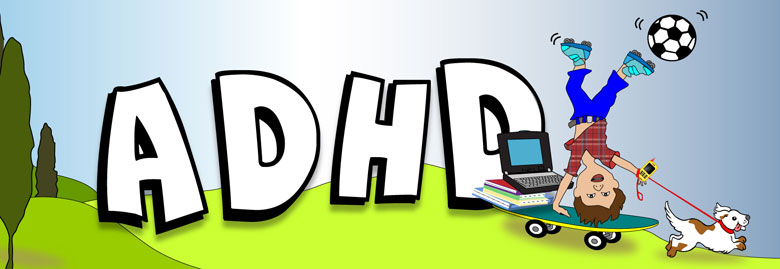What is it and why?
Plus a self-test
Anger is one of the most misunderstood and overused of human emotions. It is a reaction to an inner emotion and not a planned action.
Anger is easy to show-everyone gets angry.
The feelings underlying the anger reaction make us feel vulnerable and weak. Anger makes us feel, at least momentarily, strong and in control.
Angry behaviours are learned over the life span and therefore can be unlearned and replace with healthier patterns of coping.
Anger can be an immediate reaction to an isolated event or it can be a response after numerous events.
To repress anger is unhealthy and yet to express it impulsively, as we often do, may give momentary relief but inevitably will carry negative consequences. To alter our angry responses, we need to understand from where it comes.
There are a variety of factors that increase the probability of an anger reaction.
If we have seen our parents get angry first and resolve an issue after, we are more likely to use the same approach. Thus, types of anger are learned.
If we are frustrated and feel stressed, we are more likely to react with anger.
If we are tired, we are more prone to react in an angry fashion.
If we tend to hold our feelings inside rather than talk them out, we are more likely to have an angry outburst as the pressure increases much like a pressure cooker.
Anger Styles
Stuffing
Do you “stuff” your anger?
Do you tend to avoid direct confrontation?
“Stuffers” can deny anger…they may not admit to themselves or to others that they are angry.
“Stuffers” may not be aware that they have the right to be angry.
Some reasons we “stuff” are:
fear of hurting offending someone?
fear of being disliked or rejected?
fear of losing control?
feeling it’s inappropriate (not ok) to be angry.
feeling unable to cope with such a strong, intense emotion.
fear of damaging/losing a relationship.
it’s a learned behaviour (but it can be unlearned!)
trying to use a different style than the one I was raised with.
Consequences/Problems
Anger comes out – regardless.
Impairs relationships.
Compromises physical and mental health.
Escalating
Do you “escalate” to rage?
Do you try to control, but lose control?
“Escalators” blame and same the “provoker.
“Escalating” often leads to abusive situations.
Some reasons we escalate are:
feeling I have no other choice,
to demonstrate an image of strength/power,
to avoid expressing underlying emotions,
fear of getting close to someone,
it’s a learned behaviour (but can be unlearned!),
lack of communication skills.
Consequences/Problems
desired results may be short-term.
possible physical destruction.
impairs relationships.
compromises physical and mental health.
legal ramifications
Managing
Do you “manage” your anger?
Do you allow anger to mobilize you in positive directions?
Open, honest and direct expression is the most effective way of managing anger. Easier said than done, huh? When expressing anger directly, keep these important skills in mind…
Remind yourself that anger is a normal, human emotion-it’s OK to feel angry!
Before open, honest and direct expression, evaluate the followingc- what was the trigger event? Is this good timing for the listener?
Set a specific time limit for anger discussion.
Remember your body language –firm voice – moderate tone – direct eye contact –maintain personal “space” – establish an even eye level with the listener
Don’t attack or blame the person.
Focus on the specific behaviour that triggered your anger.
Avoid “black or white” thinking (You never….) – instead, “I’d prefer that….then I would feel….”
Use “I” statements- “I” feel angry when “I” feel angry that…..
Don’t drag in old issues now.
Check for possible compromises.
After open, honest and direct expression, close the discussion, and then move on.
When it’s over, pat yourself on the back for your assertiveness!
Say to yourself, “I (and perhaps the people around me) will be better off Click to listen highlighted text! What is it and why? Plus a self-test Anger is one of the most misunderstood and overused of human emotions. It is a reaction to an inner emotion and not a planned action. Anger is easy to show-everyone gets angry. The feelings underlying the anger reaction make us feel vulnerable and weak. Anger makes us feel, at least momentarily, strong and in control. Angry behaviours are learned over the life span and therefore can be unlearned and replace with healthier patterns of coping. Anger can be an immediate reaction to an isolated event or it can be a response after numerous events. To repress anger is unhealthy and yet to express it impulsively, as we often do, may give momentary relief but inevitably will carry negative consequences. To alter our angry responses, we need to understand from where it comes. There are a variety of factors that increase the probability of an anger reaction. If we have seen our parents get angry first and resolve an issue after, we are more likely to use the same approach. Thus, types of anger are learned. If we are frustrated and feel stressed, we are more likely to react with anger. If we are tired, we are more prone to react in an angry fashion. If we tend to hold our feelings inside rather than talk them out, we are more likely to have an angry outburst as the pressure increases much like a pressure cooker. Anger Styles Stuffing Do you “stuff” your anger? Do you tend to avoid direct confrontation? “Stuffers” can deny anger…they may not admit to themselves or to others that they are angry. “Stuffers” may not be aware that they have the right to be angry. Some reasons we “stuff” are: fear of hurting offending someone? fear of being disliked or rejected? fear of losing control? feeling it’s inappropriate (not ok) to be angry. feeling unable to cope with such a strong, intense emotion. fear of damaging/losing a relationship. it’s a learned behaviour (but it can be unlearned!) trying to use a different style than the one I was raised with. Consequences/Problems Anger comes out – regardless. Impairs relationships. Compromises physical and mental health. Escalating Do you “escalate” to rage? Do you try to control, but lose control? “Escalators” blame and same the “provoker. “Escalating” often leads to abusive situations. Some reasons we escalate are: feeling I have no other choice, to demonstrate an image of strength/power, to avoid expressing underlying emotions, fear of getting close to someone, it’s a learned behaviour (but can be unlearned!), lack of communication skills. Consequences/Problems desired results may be short-term. possible physical destruction. impairs relationships. compromises physical and mental health. legal ramifications Managing Do you “manage” your anger? Do you allow anger to mobilize you in positive directions? Open, honest and direct expression is the most effective way of managing anger. Easier said than done, huh? When expressing anger directly, keep these important skills in mind… Remind yourself that anger is a normal, human emotion-it’s OK to feel angry! Before open, honest and direct expression, evaluate the followingc- what was the trigger event? Is this good timing for the listener? Set a specific time limit for anger discussion. Remember your body language –firm voice – moderate tone – direct eye contact –maintain personal “space” – establish an even eye level with the listener Don’t attack or blame the person. Focus on the specific behaviour that triggered your anger. Avoid “black or white” thinking (You never….) – instead, “I’d prefer that….then I would feel….” Use “I” statements- “I” feel angry when “I” feel angry that….. Don’t drag in old issues now. Check for possible compromises. After open, honest and direct expression, close the discussion, and then move on. When it’s over, pat yourself on the back for your assertiveness! Say to yourself, “I (and perhaps the people around me) will be better off Powered By GSpeech






